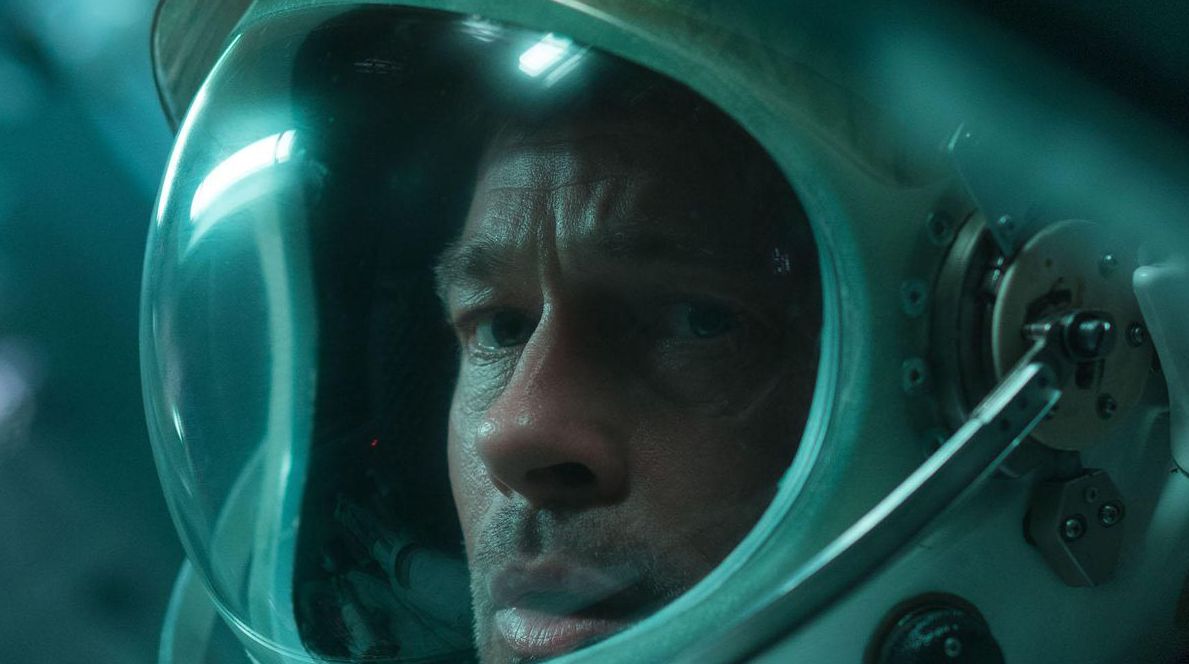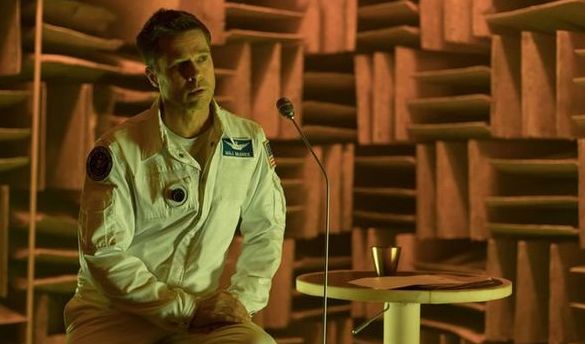
'Ad Astra' Review
 Sandra Bullock, George Clooney, Matt Damon, Ryan Gosling, Jennifer Lawrence, Matthew McConaughey and Chris Pratt have all gone into space in recent years (in big sci-fi movies). The newest A-lister to come aboard the genre is… Brad Pitt.
Sandra Bullock, George Clooney, Matt Damon, Ryan Gosling, Jennifer Lawrence, Matthew McConaughey and Chris Pratt have all gone into space in recent years (in big sci-fi movies). The newest A-lister to come aboard the genre is… Brad Pitt.
Even if you’re feeling a little spaced-out by all these interstellar offerings — put that aside. “Ad Astra” is worth another voyage into the great beyond.
And the best thing about “Ad Astra” is that it isn’t a non-stop, action-packed, explosion heavy extravaganza. This is a thinking man’s (or woman’s) sci-fi adventure. Co-writer/director James Gray actually allows us to process what we’re watching. He provides the time (and, yes, space) to contemplate events and actually get inside the challenging psyche of main character Roy McBride (played by Pitt). Those used to high action, alien-driven sci-fi may find the plot too basic, the pacing too gradual and the amount of dialogue too minimal. But those elements are what makes “Ad Astra” subtly mesmerizing and quite special.
The plot is part Shakespeare, part “Apocalypse Now”. In the near future, the space program is bustling. There are commercial flights to the Moon (and when you get there, your dining choices include Subway, Applebee’s and Dunkin’ Donuts). Pitt’s McBride is one of NASA’s top astronauts. He’s known for staying calm, cool and collected – in every situation.
That ability is put to the test when he’s informed that his father, famed astronaut Cliff McBride (Tommy Lee Jones) is still alive. The older McBride left on a secret mission to Neptune 16-years ago in search of alien life. He hadn’t been heard from in years. He and his crew were presumed dead. The son is asked to help contact his dad. But that’s not as simple as it sounds.

About every 10 or 15 minutes, Gray inserts something truly shocking: a suspenseful surprise, a sudden enemy encounter or a jolting comment from Pitt (either dialogue or narration) or Jones. These work, not to break-up the quiet sequences, but to enhance them.
Technically, “Ad Astra” gets high marks. The deep space visuals are unique and cool, and the sound design is excellent. But it’s Gray’s storytelling vision that’s the most impressive. He takes us on a one-of-a-kind journey that may seem far out to the naked eye but is wholly grounded in reality.
It took a special type of actor to make “Ad Astra” soar — a subtle superstar, a low-key action hero. Without Pitt “Ad Astra” wouldn’t have gotten off the launch pad. Roy represents the lonely, the isolated, and the mentally complicated. This movie was made for them. Can you face your greatest challenges, overcome them and then somehow come out of your protective shell?
Donald Sutherland, Liv Tyler and Ruth Negga (“Loving”) all have very minor roles. This Pitt’s movie – and he’s out of this world. And when the stars eventually align, Pitt and Jones deliver the type of moments I’ve been waiting for on-screen all year.
“Ad Astra” doesn’t play to convention. It isn’t overwhelming or forceful. And it’s timeless in a sense that (though made with today’s technology), it could’ve been made 30-years ago – and still hold-up today.


